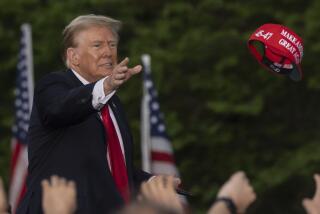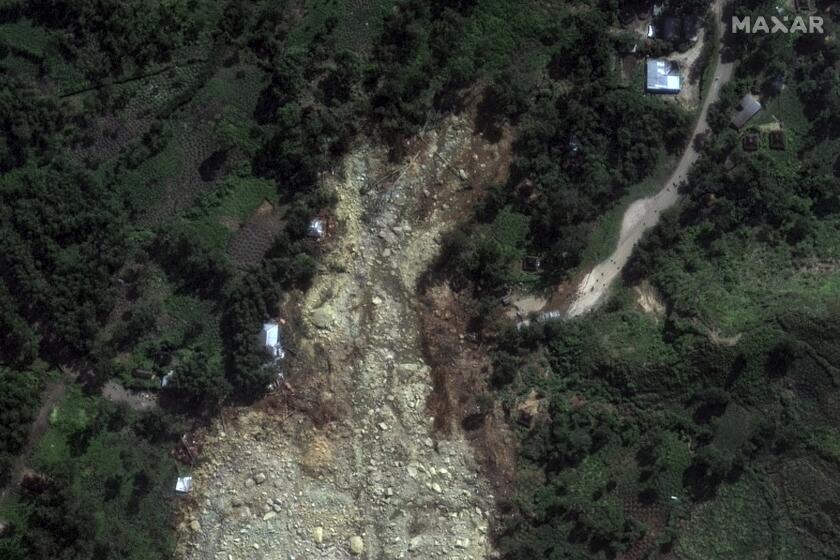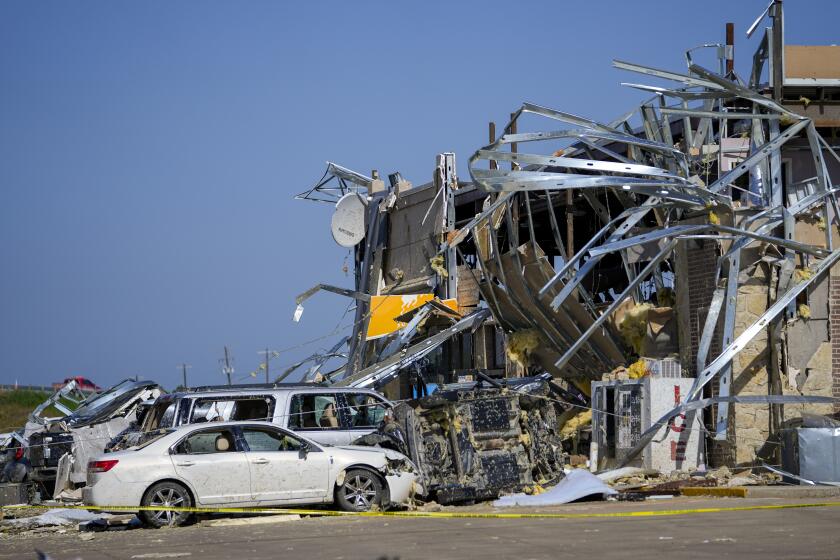Suspects in Major Mexico Cases Released : Courts: Jurists assert autonomy by freeing accused rebel, alleged assassination accomplice, jailed mayor.
A social activist arrested as a rebel leader during a government crackdown on the Zapatista National Liberation Army has been freed for lack of evidence, the second time in a single day that a federal judge disagreed with prosecutors in a high-profile case.
Jorge Santiago Santiago was released late Friday from a federal prison in the southernmost state of Chiapas after an appellate judge found that, with a key witness missing, there was not enough evidence to hold him on charges of sedition, terrorism, rioting and rebellion.
The prosecution’s inability to produce witness Salvador Morales Garibay could have further repercussions, casting doubt on government claims that charismatic rebel leader Subcommander Marcos is really Rafael Sebastian Guillen, the son of a furniture store owner in the port city of Tampico. Morales Garibay’s testimony was also important evidence in the government’s case against Marcos.
Earlier Friday, in an unrelated case, a judge found Tranquilino Sanchez innocent of aiding in the murder of ruling party presidential candidate Luis Donaldo Colosio, who was killed after a campaign rally in March, 1994.
And on Saturday, news reports from the border city of Ciudad Juarez said that a judge had released Mayor Francisco Villanueva, who was arrested last week for collecting the tolls from the federal bridge across the Rio Grande to raise money for municipal projects. His arrest provoked an outcry across the nation, which is becoming increasingly concerned with state and municipal rights.
Such judicial decisions are unusual in Mexico, where an arrest traditionally has virtually assured a conviction. Mexico does not have juries, leaving all rulings up to judges, who are notoriously vulnerable to bribes and influence peddling.
The judicial system has recently come under public scrutiny, both because of cases stemming from recent political assassinations and because greater judicial independence was one of the main campaign promises of President Ernesto Zedillo.
*
Santiago’s case provoked public outrage and accusations that political motives were behind his arrest because the evidence was so flimsy.
Arrest warrants against Marcos, Santiago and three other alleged guerrilla leaders were issued Feb. 9, after Zedillo announced that Marcos is really Guillen.
Marcos has been the main spokesman for the Zapatistas, who took control of several towns on Jan. 1, 1994, sparking 10 days of fighting that left at least 145 people dead.
The Zapatistas’ demands for better living conditions and democratic reforms, eloquently expressed in the communiques Marcos wrote in the following months, struck a chord throughout the nation.
Unmasking Marcos and ordering the arrest of alleged rebel leaders represented a dramatic effort by the government to regain the initiative from the guerrillas, who controlled an area half the size of Delaware and influenced public opinion on important issues.
As the Mexican army moved into the former rebel stronghold in the Lacandon rain forest to arrest the alleged guerrilla leaders on Feb. 10, helicopters circled Santiago’s home in Teopisca, miles from rebel territory. He was arrested in his house, where he waited for police.
The government’s only evidence against Santiago was a witness who has since disappeared, according to Jose Lavanderos, Santiago’s lawyer.
“His (the witness’s) testimony was not credible,” Lavanderos said.
Specifically, the missing witness, Morales Garibay, accused Santiago of funneling international funds meant for indigenous groups to the Zapatistas and of serving as a liaison between Marcos and Samuel Ruiz, the controversial bishop of San Cristobal de las Casas.
Right-wing groups have long accused Ruiz, a key mediator in the peace process, of being a rebel leader, which he has denied.
No accounting records were ever produced to back the first claim, Lavanderos said. As for the second claim, “even if it were true, being a liaison is not a crime,” he said.
The arrest warrants have since been suspended as part of the conditions for peace talks between the government and the rebels, scheduled to begin Thursday.
However, Lavanderos emphasized that Santiago was not released in relation with the peace negotiations: “He has been declared innocent by the court.”
More to Read
Start your day right
Sign up for Essential California for news, features and recommendations from the L.A. Times and beyond in your inbox six days a week.
You may occasionally receive promotional content from the Los Angeles Times.






